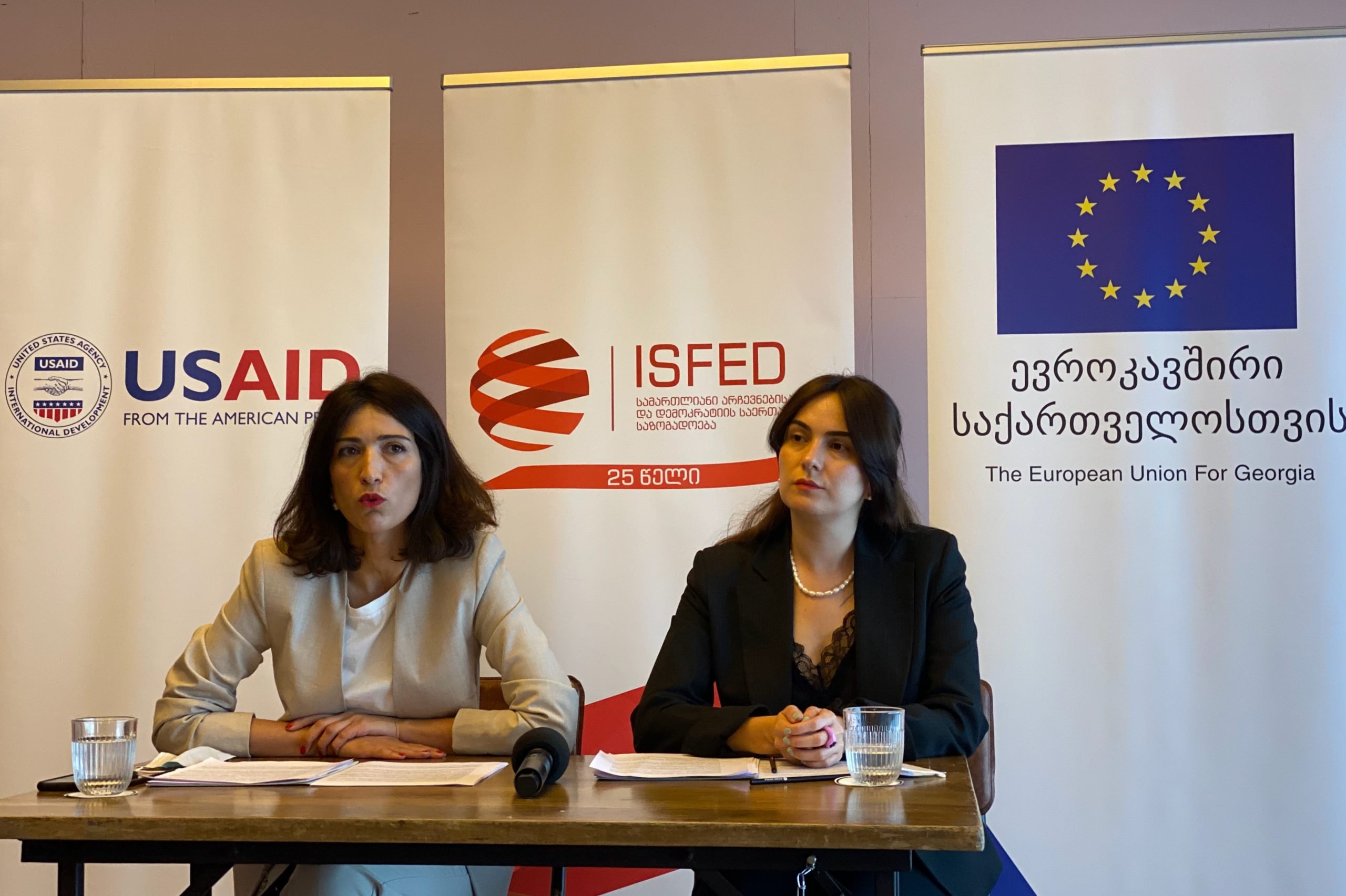The International Society for Fair Elections and Democracy (ISFED), a local watchdog, on June 15 released its pre-election period assessment, covering key noteworthy tendencies before the nearing 2021 local self-government polls.
The report underscored the added importance of this year’s local elections, given that they will decide if early parliamentary polls shall be called in 2022, as per the EU-brokered April 19 agreement. The watchdog noted that linking the two different elections “confuses the purpose” of the local polls and influences voter behavior.
While noting that the electoral reforms envisaged by the April 19 deal will positively affect the election environment, the report nonetheless said “the proposed changes are not enough to truly improve the legislative framework and the political environment.” The electoral system, election administration staffing, election dispute settlement and use of electronic technologies remain as challenges, ISFED highlighted.
The report said the draft law, recently adopted by the Parliament in the second hearing, tying state funding for political parties with their participation in parliamentary activities “does not meet international standards for party funding.”
The watchdog also noted that the announcement of “multimillion-dollar social and infrastructure projects” ahead of the local polls by the ruling Georgian Dream party “is perceived as electorally motivated and places electoral subjects in unequal conditions.”
The resignation of civil servants affiliated with former Prime Minister Giorgi Gakharia after he stepped down “reaffirms that public service in Georgia is still far from adhering to the standard of non-partisanship,” ISFED said.
- Gakharia-Affiliated Gori Municipality Officials Resign
- Zugdidi Municipality Mayor Resigns
- Samegrelo-Zemo Svaneti Governor Resigns
Noting that the media environment is diverse but polarized ahead of the elections, the watchdog said that “the public is provided with information dictated mainly by the interests of political groups.”
ISFED also stated that several instances of threats and attacks against journalists have been identified, undermining freedom of speech and expression, the free dissemination of information, and media freedom.
